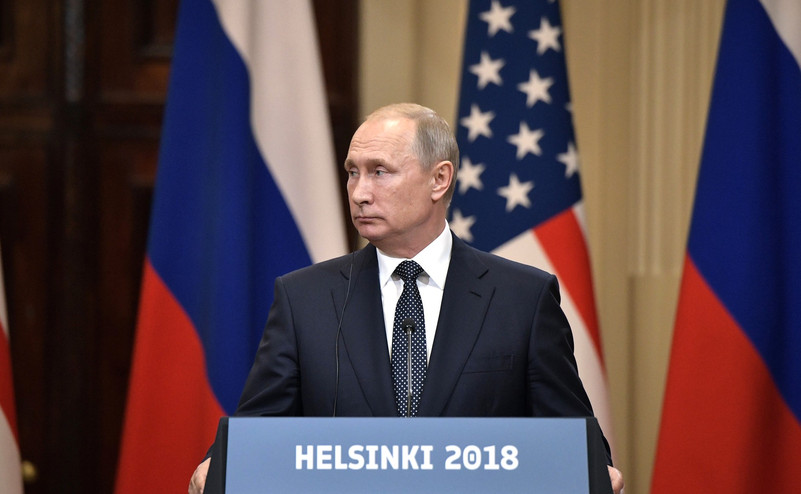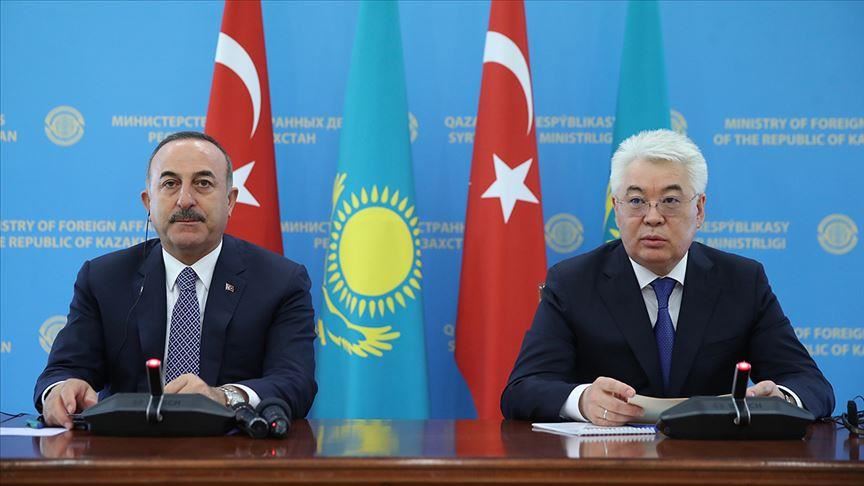
EU Observer (24 May 2019)
Dutch MEPs have called on their government to make every effort to call the EU global human rights sanctions regime the 'EU Magnitsky Act', after Sergei Magnitsky, a Russian activist, who exposed a tax fraud by corrupt officials, was incarcerated and died in prison in 2009.
The Dutch government should resist these calls and work towards the adoption of EU global human rights sanctions, whose name expresses the clear commitment to tackle not only human rights violations but also respect the rule of law and the rights of those sanctioned.
The Dutch government has proposed to adopt an EU global human rights sanctions regime that would allow the EU to impose visa restrictions and freeze the assets of those committing grave human rights violations around the world.
The proposal was inspired by the so-called 'Magnitsky Acts', adopted in the US, followed by Canada, and also by EU member states, such as Estonia, Latvia, Lithuania, and the UK.
First of all, the debate about the choice of name should not boil down to a political muscle show against Hungary, which opposes the reference to Magnitsky because of its political relations with the Russian government.
But more importantly, the EU should clearly distance itself from the US Global Magnitsky Act, which is the most well-known of them, including by choosing a different name.
The choice of name is not only about moral support and a symbolic statement about the fate of Sergei Magnitsky. This has clear political merit.
However, this particular choice of name has further, less desirable connotations. The name 'Magnitsky Act' was originally used by the Obama administration in 2012 for a sanctions regime limited to human rights violations in Russia.
In 2016, the US Global Magnitsky Human Rights Accountability Act introduced a different regime targeting human violations worldwide. Today, the name 'Magnitsky Act' is most prominently associated with the second law, the US Global Magnitsky Act.
The US sanctions imposed for global human rights violations should not and cannot be the model for the EU's global human rights sanctions regime.
EU requirements
Crucially, the US regime does not provide for a delisting procedure for those who have been unlawfully targeted, nor does the US judicial system offer judicial review that would meet the requirements of the EU Charter of Fundamental Rights or the European Convention on Human Rights.
The US Global Magnitsky sanctions are based on the Global Magnitsky Human Rights Accountability Act 2016 enacted by Congress and an Executive Order 2017 adopted by president Trump.
The two instruments differ greatly.
The 2016 Act vests the president with great discretion to decide whom to list. However, it provides for example for the option to terminate the sanctions if credible information exists that the sanctioned person did not engage in the activity for which sanctions were imposed, if the person had already been prosecuted appropriately, or if the person demonstrated a change in behaviour.
By contrast, the 2017 executive order, which ultimately determines the nature of the sanctions in practice, only provides vaguely that the secretary of the Treasury is authorised 'to determine that circumstances no longer warrant' the imposition of sanctions and 'give effect to that determination'.
The executive order also declares 'a national emergency' in order to deal with the 'unusual and extraordinary threat' of 'serious human rights abuse and corruption around the world'.
The declaration of emergency allows the US government to dodge the usually applicable rule of law guarantees. The executive order does not address possibilities for judicial review.
The actual possibilities of judicial review in the US would not satisfy the requirements developed by the Court of Justice of the European Union by reference to the EU Charter of Fundamental Rights or the European Convention on Human Rights.
Strong political reasons may support the adoption of an EU global human rights sanctions regime.
However, any such regime must meet the rule of law and human rights guarantees to which the EU and all member states are committed.
Honouring this commitment is also absolutely necessary in the face of grave human rights violations – a lesson learned from the EU's existing counter-terrorist sanctions regimes.
In particular in the earlier years of the counter-terrorist sanctions regimes, large numbers of annulment actions before the Court of Justice were successful because the sanctions were found to infringe the most basic rights of defence.
The EU's commitment to human rights, including the human rights of those sanctioned, requires the EU to distinguish its sanctions regime from the US Global Magnitsky sanctions, not just in substance but also in name.
The views expressed in this opinion piece are the author's, not those of EUobserver.
No comments yet.
- CROATIA IN TALKS WITH SWEDEN, U.S. ON FIGHTER JETS - MINISTER The Balkans 24.05.2019
- DUTCH SOCIALISTS ON TOP IN FIRST EP ELECTION EXIT POLL Europe - EU 24.05.2019
-
 TURKEY, KAZAKHSTAN SEEK TO BOOST TRADE TIES
Central Asia
24.05.2019
TURKEY, KAZAKHSTAN SEEK TO BOOST TRADE TIES
Central Asia
24.05.2019
- NETHERLANDS POLL SURPRISE: ANTI-EU PARTIES FALL SHORT Europe - EU 24.05.2019
- GEORGIAN DEFENCE MINISTRY: ‘IN THE FUTURE WE ONLY WELCOME US BASES IN GEORGIA The Caucasus and Turkish-Armenian Relations 24.05.2019
-
19.04.2024
Türk-Ermeni İlişkileri Üzerine Ömer Engin Lütem Konferansları 2023 -
11.04.2023
Türk-Ermeni İlişkileri Üzerine Ömer Engin Lütem Konferansları 2022 -
27.03.2023
RADİKAL ERMENİ UNSURLARCA GERÇEKLEŞTİRİLEN MEZALİMLER VE VANDALİZM -
17.03.2023
PATRIOTISM PERVERTED -
23.02.2023
MEN ARE LIKE THAT -
03.02.2023
BAKÜ-TİFLİS-CEYHAN BORU HATTININ YAŞANAN TARİHİ -
16.12.2022
INTERNATIONAL SCHOLARS ON THE EVENTS OF 1915 -
07.12.2022
FAKE PHOTOS AND THE ARMENIAN PROPAGANDA -
07.12.2022
ERMENİ PROPAGANDASI VE SAHTE RESİMLER -
30.03.2022
Türk-Ermeni İlişkileri Üzerine Ömer Engin Lütem Konferansları 2021 -
01.01.2022
A Letter From Japan - Strategically Mum: The Silence of the Armenians -
01.01.2022
Japonya'dan Bir Mektup - Stratejik Suskunluk: Ermenilerin Sessizliği -
11.02.2021
Türk-Ermeni Uyuşmazlığı Üzerine Ömer Engin Lütem Konferansları 2020 -
03.06.2020
Anastas Mikoyan: Confessions of an Armenian Bolshevik -
08.04.2020
Sovyet Sonrası Ukrayna’da Devlet, Toplum ve Siyaset - Değişen Dinamikler, Dönüşen Kimlikler -
18.03.2020
Türk-Ermeni Uyuşmazlığı Üzerine Ömer Engin Lütem Konferansları 2019 -
08.03.2019
Türk-Ermeni Uyuşmazlığı Üzerine Ömer Engin Lütem Konferansları 2018 -
12.06.2018
Ermeni Sorunuyla İlgili İngiliz Belgeleri (1912-1923) - British Documents on Armenian Question (1912-1923) -
02.12.2016
Turkish-Russian Academics: A Historical Study on the Caucasus -
01.07.2016
Gürcistan'daki Müslüman Topluluklar: Azınlık Hakları, Kimlik, Siyaset -
10.03.2016
Armenian Diaspora: Diaspora, State and the Imagination of the Republic of Armenia -
24.01.2016
Ermeni Sorunu Temel Bilgi ve Belgeler (2. Baskı)
-
AVİM Conference Hall 24.01.2023
CONFERENCE TITLED “HUNGARY’S PERSPECTIVES ON THE TURKIC WORLD"









